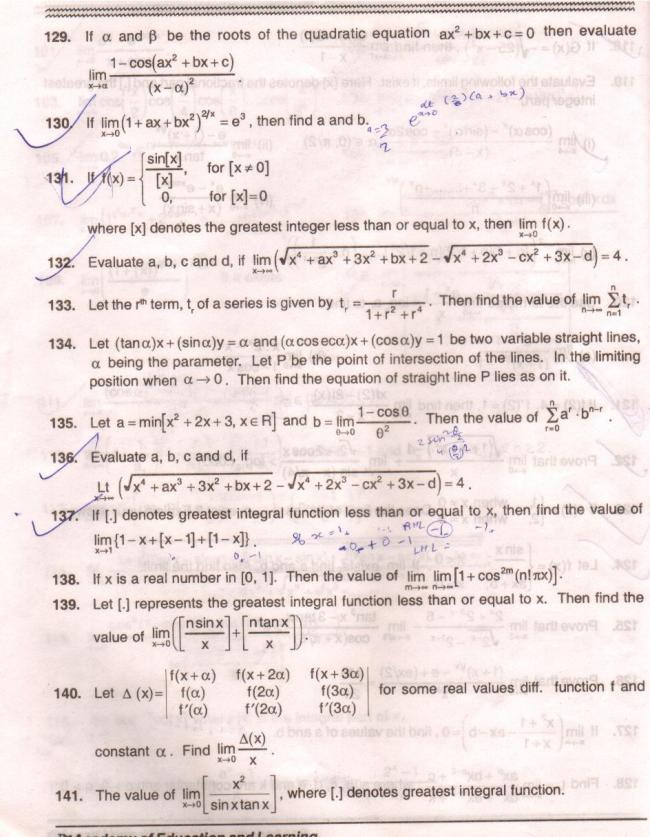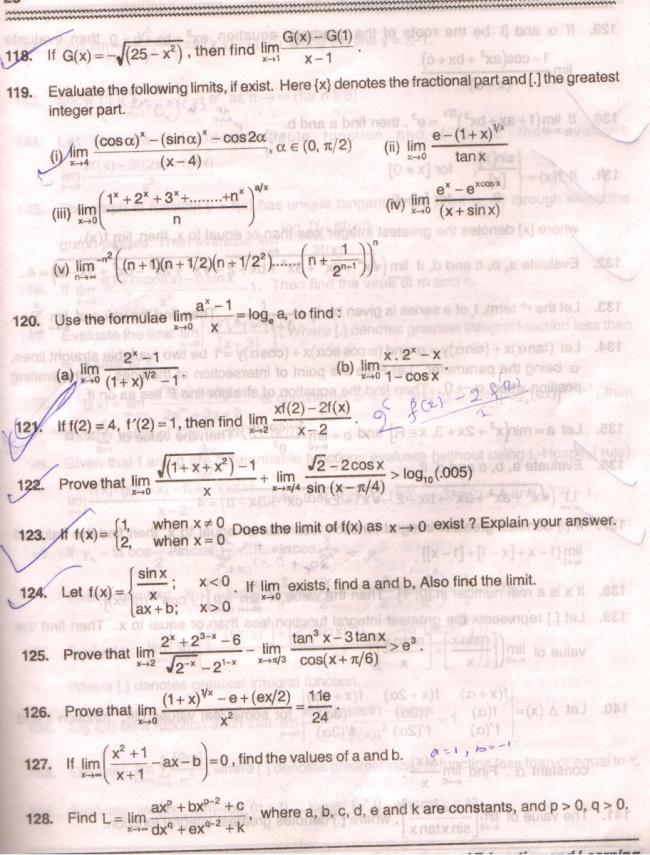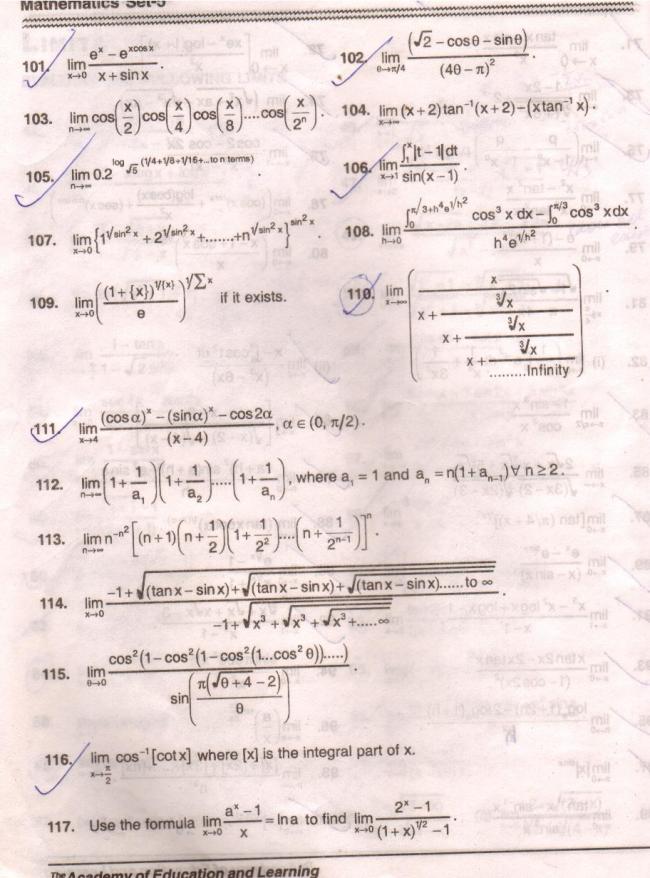66 ka answer simply tan1 log sin 1 hoga
Q1. lim(x→2a) [√x-2a + √x - √2a]/[√x2-4a2]
Q2. lim(x→∞)2x(√x2+1 - x)
-
UP 0 DOWN 0 1 85

85 Answers
63 ka answer 1/2 hai
simply use the expansion of sinx=x - x3/3! .....
and tanx =x-x3/3........
u will get 2x -x/3x-x=1/2 [1]
edited list of questions to be solved....
66, 77, 78, 81, 82(i), 85, 94, 99, 98
80)
\left[ \frac{x-1+\cos x}{x} \right]^{1/x} = \left[ 1 + \frac{-1+ 1- 2\sin^2{x/2}}{x} \right]^{1/x} = \left[ 1 -2 \frac{\sin^2{x/2}}{x} \right]^{1/x}
Now this is simple?
65 mein yeh
0 X ∞form hai
isko 0/0 form banao by taking the tan (∩/2x)term down and making cot(∩x/2)
now the ques is
limx->1 (1-x)/cot(∩x/2)
use l hospital to get the required answer
aare...i used L'Hospital...and manipal expansion...both getting same..then...i dunno.....
ok...i ll retry[3]
64ka ans 1/120 hai
again use expansion
sinx=x-x3/3!+x5/5!...........
baki sab kuch zero ho jayega and u will left with the answer
ie
1/120
@abhirup.... even im getting 1/2 but answer. is given 0.... i think u r correct....
@nishant bhaiyya.... thx.
Q6
(1+x)^{1/x} = e^{1/x\times log(1+x)} \Rightarrow \frac{d}{dx}(1+x)^{1/x} = \frac{d}{dx}e^{1/x\times log(1+x)} = e^{1/x\times log(1+x)}\times \frac{d}{dx}1/x\times log(1+x) = e^{1/x\times log(1+x)}\times \frac{d}{dx}1/x\times log(1+x)
Now is this simple?
PAGE 1 PAGE 2 UNTICKED ONES..... OTHER PAGES I HAVE NOT TRIED THEM PROPERLY....
63, 64, 65, 66, 68, 77 to 82, 85, 94, 96, 98, 99
jin sab tick nahiin huen hain.. gole ko bhool jaayo...
sirf page 1 and page 2... page 3,4,5,6 maine try nahiin kiya hai... bhaiyya bole post karne ke liye to maine saare post kar diye..
@ashish...
derive the expansions...
do min nahi lagega....
start like...
tanx = ao + a1x +a2x +a3x + ..................................
put x=0.
so ao=0
then diff once and put x=0.. u get a1.
then diff again and put x=0... u get a2...
and so on...
u will get a pattern ...
Q 99. haan it is -1/2 ... Q 94 ans is pataa nahiin i got only π but it is given π and 1 ... i think thats a typo...
manipal... can u prove the expansions of:
tanx, sin-1x, cos-1x and tan-1x ?
Ques 85 ka ans not defined hai!!!!!!!!!!
upper x ka coeff bada ban raha hai
94 Ques mein use
cos2x=(cos2x+1)/2
Ques becomes
cos[∩/2(cos2x)]/x2
further
cos(∩/2-∩sin2x)/x2
or sin(∩sin2x)/x2
so ans should be zero



